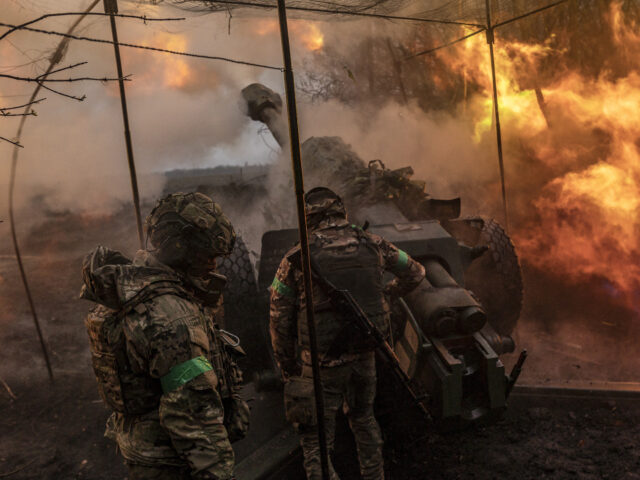The Ukraine “special military operation” is a “de facto” war, Russia admitted for the first time, while blaming the West for the escalation and accusing Ukraine of occupying Russian territory.
Vladimir Putin’s chief spokesman Dmitry Peskov is the first senior Russian figure to acknowledge the country is at war, saying the conflict changed in nature after Western states began to arm Ukraine. Responding to internal comments about his comments on Friday, Peskov later clarified his position, saying that while the government acknowledged it is “de facto” at war, that did not change the state’s legal position that the invasion of Ukraine remains a “de jure” special military operation.
While the semantics of conflict — whether Moscow calls its invasion a war or not — will matter little to those fighting on the front lines, or those being bombed at home, such developments will seem important to intent Kremlin watchers attempting to infer attitudes and intentions from the Russians.
That the admission that Russia is in fact at war comes just days after Putin rubber-stamped another six years in power for himself in the nation’s ‘elections’ may be significant. Indeed, another first that quickly followed the vote was the Russian leader naming his deceased former critic and rival Alexi Navalny for the first time in many years, possibly signalling Putin is feeling comfortable in his position.
Peskov said:
“We are at war. Yes, it began as a special military operation, but as soon as this company formed there, when the collective West became a participant in this on the side of Ukraine, this became a war for us. I am convinced of this. And everyone should understand this.”
While Russia appears willing to face reality in this regard — that it is unmistakably at war — it continues to stick to its own ideological guns elsewhere. Indeed, Peskov accused Ukrainians living in Ukraine of occupying Russian territory, prompting him to remark that Moscow will seek to “liberate the territory”.
This claim stems from Russia having staged referendums before annexing four Ukrainian regions in 2022 — Donetsk, Luhansk, Kherson and Zaporizhzhia — declaring these areas legally fully part of Russia itself. Living up to this belief, during last week’s election it is claimed in some Western reports that soldiers even went door-to-door with ballot boxes in Russian-occupied areas encouraging residents to vote.
The problem for Russia is that while it invaded vast swathes of these four regions, it did not manage to occupy the full territory, despite having declared them to be lawful Russia. The people living in these areas consequently need “protecting” from Ukraine, Moscow claims.
While Russia is speaking of itself being at “war” for the first time, this is not by far the first time it has accused the West of going to war with Moscow. Even so, much of Russia’s energy in public-facing messaging for Western leaders is focused on dissuading NATO nations from continuing to provide aid, or from offering new levels of lethality.
While these threats can take on a lurid, alarming aspect — such as the constant talk of nuclear war from the Kremlin — the latest messaging relies on a hectoring history lesson and a warning of the humiliation of failure. Threatening to inflict a total, historic defeat on Europe if it continues to involve itself in Russia’s “special military operation” in Ukraine, Russian diplomat Vasily Nebenzia at the United Nations cited French leader Napoleon Bonaparte’s disastrous invasion of Russia in the 19th century.
He said:
When planning the deployment of regular troops, Paris needs to remember an important thing: they will be considered as a legitimate and even priority target for our army. Perhaps the time has come to honestly answer the question: what is of greater value to you – the life and well-being of your own citizens or an illusory dream to weaken Russia
By the way, literally today marks the 210th anniversary of the entry of the Russian army into Paris, when France’s previous attempt to unite Europe on an anti-Russian basis failed. We advise neither you nor the Germans to forget the lessons of history, so as not to [regret your actions] later.
The rhetoric is no doubt meant for French President Emmanuel Macron, who started the Ukraine War in 2022 in a conciliatory mood and put considerable effort into trying to de-escalate with President Putin, although evidently to no avail. Of late, Macron has reinvented himself as an ultra-hawk on Russia, going far further than any other NATO leader to call for direct Western military involvement in the Ukraine war.

COMMENTS
Please let us know if you're having issues with commenting.